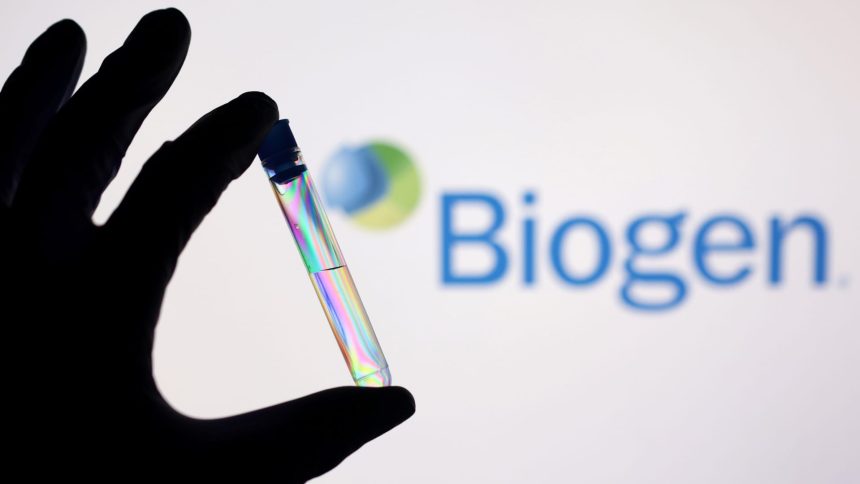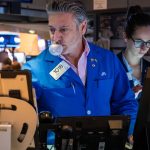Biogen on Wednesday reported first-quarter profit that topped estimates as the company’s cost-cutting efforts took hold and sales of its closely watched Alzheimer’s drug, Leqembi, came in higher than expected.
Biogen and Eisai‘s Leqembi became the first drug found to slow the progression of Alzheimer’s disease to win approval in the U.S. in July. The treatment’s launch has been sluggish, but uptake appeared to accelerate in the first quarter.
Leqembi brought in about $19 million in sales for the quarter, up from the $10 million the drug generated last year. That blows past the $11 million analysts had expected, according to estimates compiled by FactSet.
The number of patients on the therapy increased nearly 2.5 times since the end of 2023, according to Biogen. The company added that the number of new patients who started Leqembi jumped in March, making up more than 20% of the cumulative patients now on the treatment.
Biogen did not provide a specific number of patients using Leqembi. In February, Biogen CEO Chris Viehbacher told reporters that there were around 2,000 patients currently on Leqembi.
The company hopes the drug will drive growth as it cuts costs and sees sales plummet for its multiple sclerosis therapies, some of which face generic competition.
Here’s what Biogen reported for the first quarter compared with what Wall Street was expecting, based on a survey of analysts by LSEG:
- Earnings per share: $3.67 adjusted vs. $3.45 expected
- Revenue: $2.29 billion vs. $2.31 billion expected
The biotech company booked sales of $2.29 billion for the quarter, down 7% from the same period a year ago. It reported net income of $393.4 million, or $2.70 per share, for the first quarter, up from net income of $387.9 million, or $2.67 per share, for the same period a year ago.
Adjusting for one-time items, the company reported earnings of $3.67 per share.
Biogen reiterated its full-year 2024 adjusted earnings forecast of $15 to $16 per share. Analysts surveyed by LSEG had expected full-year earnings guidance of $15.49 per share.
The company also reiterated its 2024 sales guidance of a low- to mid-single digit percentage decline compared with last year.
Read the full article here




